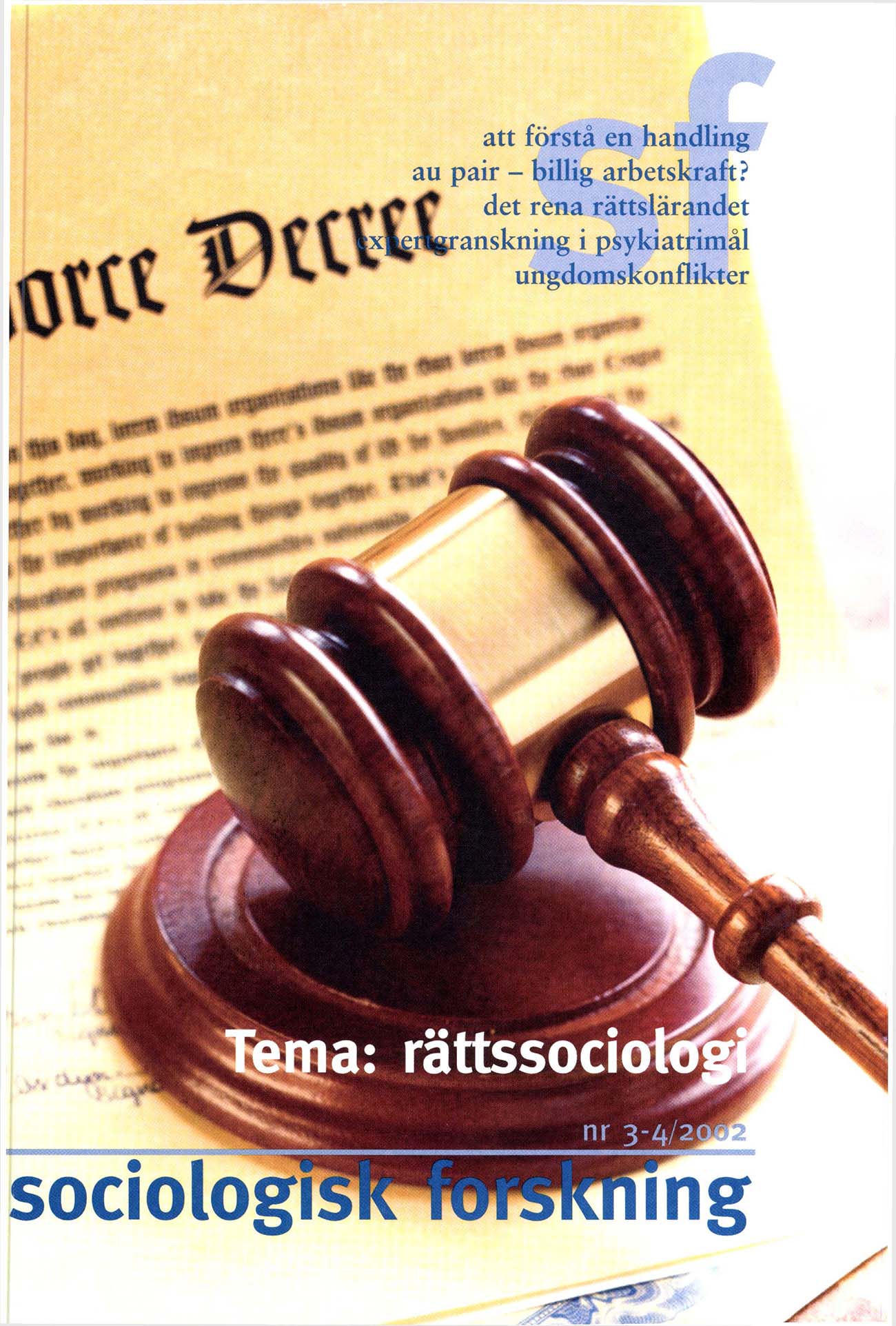Kollegialitet, terapi och medling
expertgranskning i psykiatrimål
DOI:
https://doi.org/10.37062/sf.39.19442Keywords:
experts, court hearings, interpretative repertoires, compulsory psychiatric careAbstract
Collegealism, therapy and mediation - experts’ interpretative repertoires in court hearings relating to compulsory psychiatric care
This article investigates the role of court appointed psychiatrists (AP) in Swedish court hearings relating to compulsory psychiatric care. Data consists of tape recordings and documents from twelve court hearings together with informal interviews with actors in court. The discourse in court is analyzed in terms of interpretative repertoires. The possibility for APs to examine each case is limited by shortage of time and resources. Furthermore, APs may have to take into account an out-of-court, professional relationship to the treating psychiatrist(CP). We find that conversation between APs and CPs frequently are carried out in a collegiate repertoire. These circumstances inhibit a detailed critical examination of the CP’s application for compulsory care, which in turn helps explaining why APs seldom assess cases different from CPs. How, then, is the AP’s status as expert reproduced in courtroom conversation? This is accomplished by using a disclosing repertoire, which invites the patient to produce incoherent talk. Expert status is also reproduced when APs give medical advise to patients in a therapeutic repertoire. Applying a mediating repertoire, APs attempt to resolve clinical conflicts between CPs and patients. As a result, the legal conflict at stake is downplayed.
Downloads
Published
How to Cite
Issue
Section
License
All content in Sociologisk Forskning is published with immediate open access, under the Creative Commons license CC BY-NC-ND 4.0.
All content may be read, downloaded, shared and printed for non-commercial purposes, free and without fees. Contents may not be altered. When content is reused, author, source and a link to the copyright licence must be provided. The author retains copyright to their content. No publication fees are charged.





